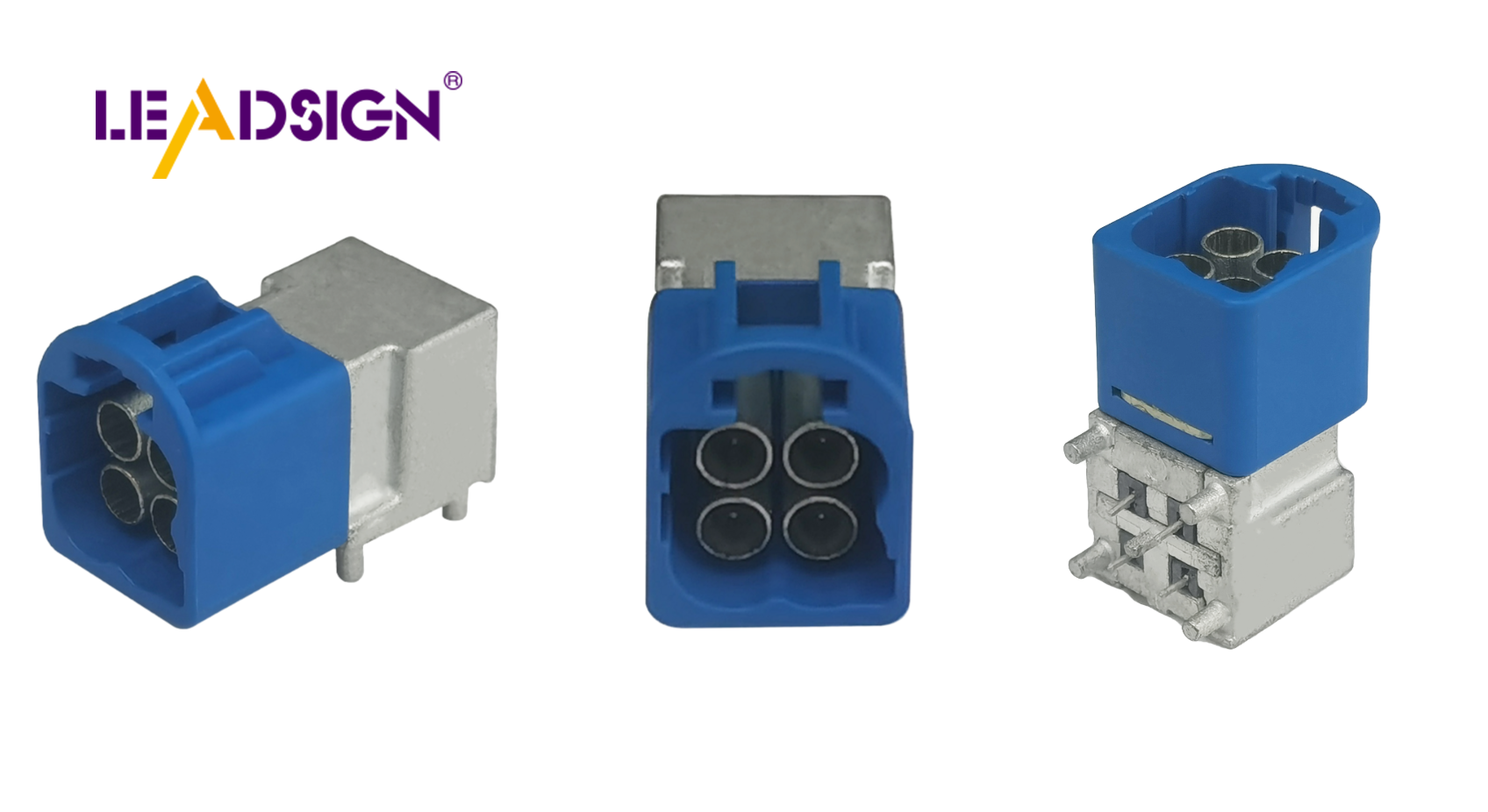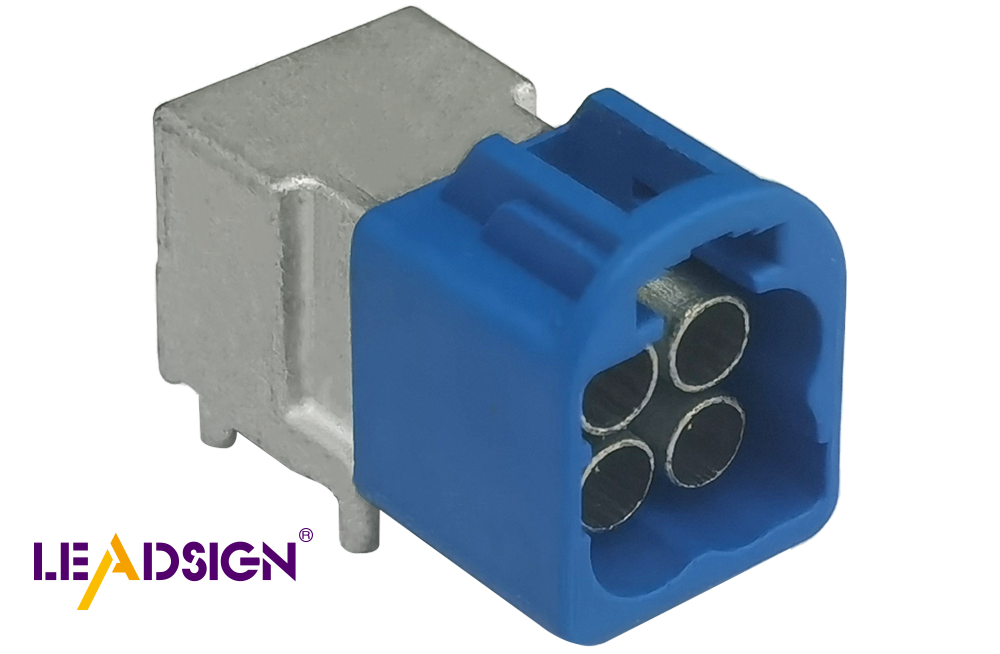Choosing the Best Automotive Wiring Connector Types

Automotive electrical connectors types are crucial components for your vehicle's electrical system. They play a vital role in facilitating the smooth flow of power and signals between different components. Without reliable connectors, your car may experience electrical issues. Various automotive electrical connector types are designed for specific functions and environments, ensuring optimal performance and safety. These connectors are essential for maintaining the efficiency and reliability of your vehicle's systems, contributing to a secure and seamless driving experience.
Understanding Automotive Wiring Connectors

What Are Automotive Wiring Connectors?
Definition and Function
Automotive wiring connectors are key parts of a car's electrical system. They join wires and cables to send power and signals smoothly. These connectors help different car parts, like the engine or lights, talk to each other. By making strong connections, they keep your car's electrical systems working well.
Importance in Vehicle Systems
You need automotive wiring connectors for your car to work right. They are important for features like emissions controls and safety systems. As technology grows, we need better connectors that work fast. These connectors help car parts communicate easily, making driving safer and more efficient.
Common Materials Used
Plastic Connectors
Plastic connectors are common because they are light and cheap. They stop electrical shorts by insulating well, keeping things safe. You can find them in places like the dashboard or lights. They're tough and don't rust, so they're good for rough conditions.
Metal Connectors
Metal connectors conduct electricity well and are strong. They're used where high power is needed, like near the engine. Metal ones handle heat and tough spots well, lasting a long time. Using metal helps make your car's electrical systems reliable.
Types of Automotive Electrical Connectors
Knowing about different automotive electrical connectors helps you pick the best one for your car. Each type is special and used for certain jobs.
Blade Connectors
Features and Uses
Blade connectors are flat and fork-shaped. They are used for quick connections in cars. You can easily plug them into blocks or holders, perfect when you need to often connect and disconnect wires. They are common in car sound systems and lights.
Good and Bad Points
Good:
Simple to use
Easy to find and cheap
Good for low power uses
Bad:
Not as strong as others
Can get loose, causing bad connections
Bullet Connectors
Features and Uses
Bullet connectors look like cylinders that fit tightly. They are used where a strong connection is needed, like in motorcycles. Their shape keeps them connected even with shaking.
Good and Bad Points
Good:
Strong hold
Handles shaking well
Simple to put in place
Bad:
Only fits certain wire sizes
Might need special tools to attach
Butt Connectors
Features and Uses
Butt connectors join two wires end-to-end. Use them to make wires longer or fix broken ones. These are important in fixing cars, making sure wires stay connected well. They're often used in trailer wiring repairs.
Good and Bad Points
Good:
Makes a strong link
Insulated types add safety
Works with many wire sizes
Bad:
Needs tools to attach
Hard to take apart once joined
Learning about these automotive electrical connectors types helps you choose the right one for your car's electric system. Each has its own good points and challenges, so think about what you need before picking.
Ring and Spade Connectors
Features and Uses
Ring and spade connectors are important in car wiring. They have special shapes for different uses.
Ring connectors are round. You attach them by crimping or soldering, making them stay put. Use them when you need strong connections, like with battery wires.
Spade connectors look like forks. They're easy to connect and disconnect. Tighten a screw to hold them in place, good for car lights or speakers.
Good and Bad Points
Think about the pros and cons of each:
Ring Connectors:
Good:
Strong, lasting connection.
Great for shaky places.
Best for key spots like batteries.
Bad:
Need tools to set up.
Harder to remove often.
Spade Connectors:
Good:
Quick to connect.
Easy for frequent changes.
Simple with basic tools.
Bad:
Can get loose if not tight.
Not as good in shaky spots as ring ones.
Knowing about these connector types helps you choose well. Whether you want a firm link or an easy switch, ring and spade connectors offer choices for your car's wiring needs.
Things to Think About When Picking Connectors
When picking car electrical connectors, think about several things. Knowing these helps you choose better for your car's work and safety.
Electrical Needs
Current and Voltage Limits
Check the current and voltage limits of connectors. These show how much power a connector can take. Picking the right one stops it from getting too hot or breaking. Always match the connector's limits with your car's system for safety.
Weather Conditions
Weather affects how well connectors work. If your car is in tough weather, like very hot or wet places, pick strong connectors. Look for ones with good covers to keep out water and rust.
Connector Size and Fit
Space Limits
Space in your car might limit connector choices. Make sure they fit without bumping other parts. Small connectors are great for tight spots, making setup easy.
Matching with Current Systems
Matching with current systems is key. Ensure the connectors fit with your car's wires and parts now. This match stops problems and makes them work well together.
Strength and Trustworthiness
Rust Resistance
Rust resistance keeps connectors lasting long. Pick ones made from stuff that doesn't rust, like gold or silver coats. These last well over time even in hard places.
Lasting Through Tough Times
Lasting through tough times is important too. Pick connectors that handle shakes, temperature changes, and weather well. Strong ones stay working longer, so you don't need to fix them often.
By thinking about these things, you can pick the best car electrical connectors for your vehicle. This careful choice makes sure your car's electric parts stay good, safe, and reliable.
Tips for Picking the Right Connector
Choosing connectors for your car can be tricky. But, with some tips, you can choose safely and smartly.
Knowing What You Need
Checking System Needs
First, know what your car's system needs. Look at how much power the connectors need to handle. This stops them from getting too hot or breaking. If your car is in tough weather, pick connectors that resist rust and heat changes.
Planning for the Future
Think about future needs too. As tech grows, cars need better connectors. Choose ones that can handle upgrades later. This saves time and money because you won't change them often.
Asking Experts
When to Get Help
Sometimes it's best to ask an expert. If you're not sure about connectors, they can help a lot. They know different types and which fit your car best.
Why Expert Help is Good
Experts know a lot and help you pick right now and later needs. They tell you about new tech and trends in places like Europe or Asia Pacific. This helps you stay updated and choose wisely.
By knowing your needs and asking experts, you can pick the right connectors for your car. This makes your car's electric system work better and keeps driving safe.
Choosing the right automotive wiring connectors is important for your car. Keep these points in mind:
Know the Types: Each connector has special uses. Learn about them to choose well.
Think About Everything: Check power needs, size, fit, and strength. These make sure connectors work for your car.
Ask Experts: Professionals can give good advice and keep you updated on new trends.
Good connectors make your car run better and safer. Choose wisely for a smooth drive.
See Also
Significance of Fakra Auto Connectors in Contemporary Cars
Enhancing Auto Data Transfer: Cutting-Edge Connectors and Cables
Benefits of HFM Connectors in Auto Sector

